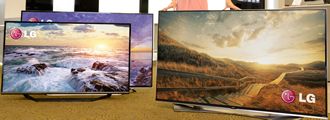 The creator of Linux, Linus Torvalds has discretely muttered that he does not think that the world of parallel computing is much chop.
The creator of Linux, Linus Torvalds has discretely muttered that he does not think that the world of parallel computing is much chop.
In his typically understated way, he hinted that parallelism was “snake oil” and that a huge body of ideas related to that flavour of computing was “garbage”,
“The whole “let’s parallelise” thing is a huge waste of everybody’s time. There is this huge body of “knowledge” that parallel is somehow more efficient, and that whole huge body is pure and utter garbage. Big caches are efficient. Parallel stupid small cores without caches are horrible unless you have a very specific load that is hugely regular,” Torvalds said.
He said that people want mobility, so “the crazies talking about scaling to hundreds of cores are just that – crazy. Why give them an ounce of credibility?”
Torvalds said that the only place where parallelism matters is in graphics or on the server side, where we already largely have it. Pushing it anywhere else is just pointless.
“End users are fine with roughly on the order of four cores, and you can’t fit any more anyway without using too much energy to be practical in that space. And nobody sane would make the cores smaller and weaker in order to fit more of them – the only reason to make them smaller and weaker is because you want to go even further down in power use, so you’d still not have lots of those weak cores,” Torvalds said.
Just in case you missed his subtle point he added: “Give it up. The whole “parallel computing is the future” is a bunch of crock.”
Needless to say there was a controlled and not-at-all-holiday-tipple-fuelled debate about this statement on various news groups. Most of it was about the language Torvalds used – and not just the swear words. The wonderful world of parallelisation is so complex that there are many words to describe different aspects about what it actually means and if you use the wrong ones then the grammar pedants will tear you to bits.
Generally though the feeling about Torvalds’s comments was that the it was not that parallelism which was to blame. In theory it should all be wonderful. But the software running it is still not up to snuff.



















